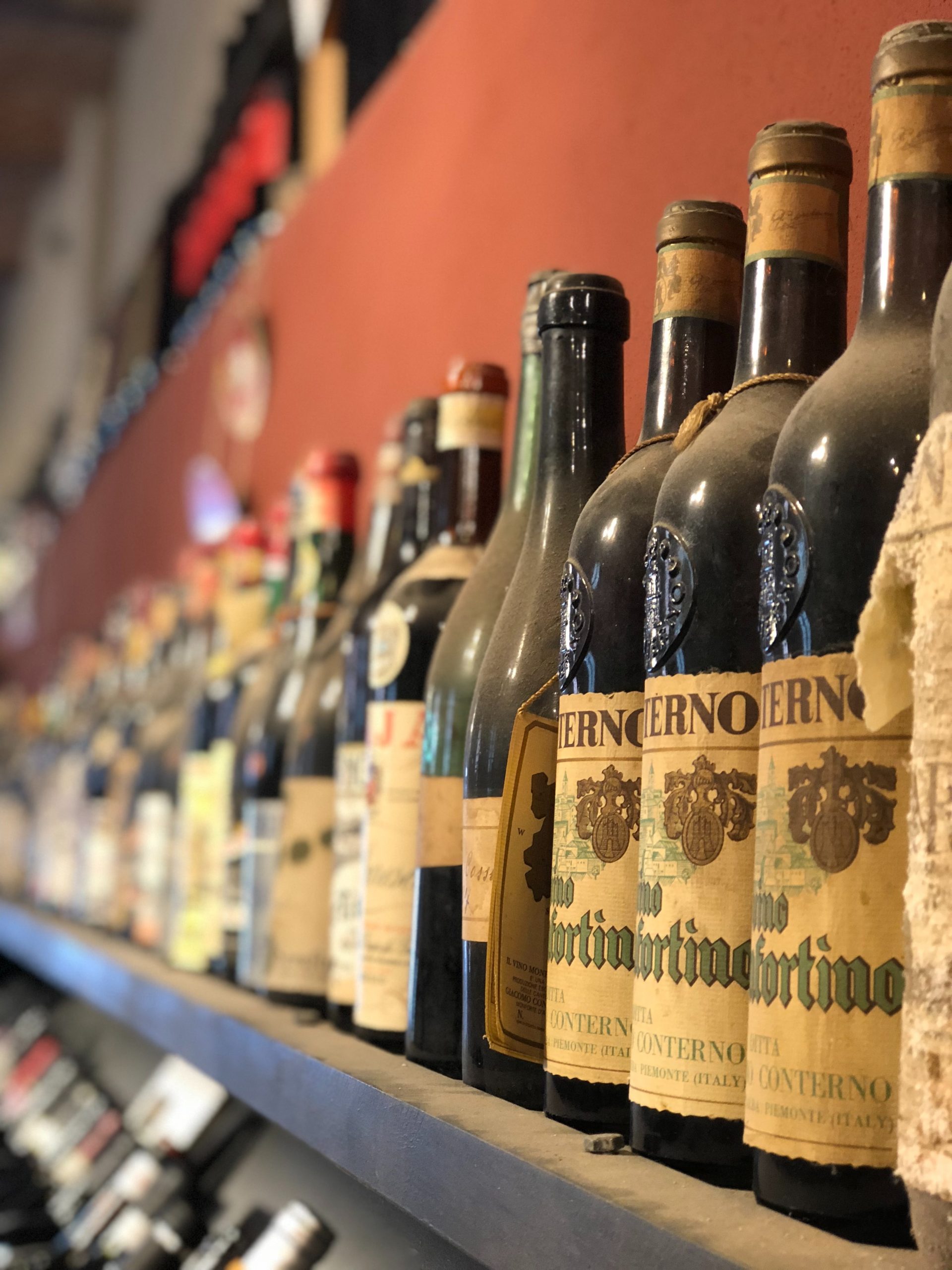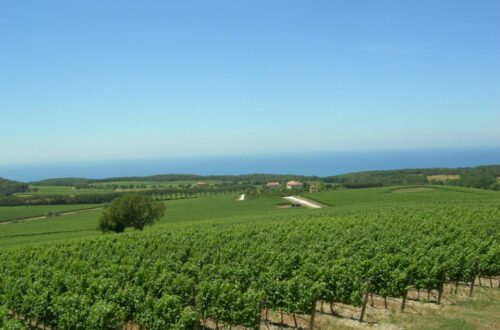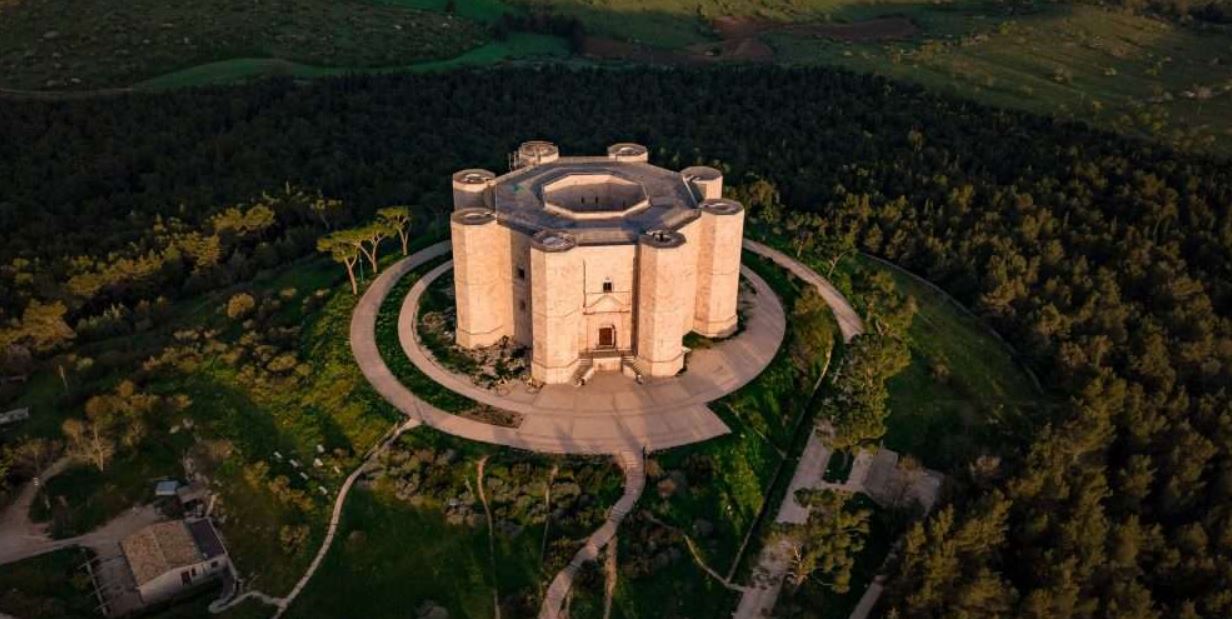Table of Contents
Introduction
Among Italy’s rarest sweet wines, Loazzolo DOC offers a glimpse into Piedmont’s artisanal soul. Crafted exclusively from Moscato Bianco, this golden-hued passito is born in Alto Asti’s misty hills, where autumn fog nurtures noble rot and limestone soils lend elegance. For lovers of Italian dessert wines, Loazzolo is a micro-DOC treasure—a wine so small in production, it is almost mythical.
What is Loazzolo DOC?
Loazzolo DOC is Italy’s smallest appellation, both in geography and production. Established in 1992, it exclusively produces passito wines from Moscato Bianco grapes that have undergone natural drying and, often, the magic of botrytis cinerea (noble rot). These wines are rich in honeyed aromas, yet balanced by vibrant acidity, making them exquisite companions to fine desserts or moments of quiet contemplation.
History and Origins
The origins of Loazzolo trace back centuries, with local records showing Moscato cultivation as early as the Middle Ages. The area’s unique climate—cool nights, autumn mists, and long sunny days—was perfect for creating naturally sweet, concentrated wines. While Moscato d’Asti gained global fame, Loazzolo remained a hidden gem, cherished by local winemakers and sought by collectors in-the-know. The DOC status in 1992 was both a recognition of its historical tradition and a preservation of its artisanal methods.
Where It’s Made: Geography & Terroir
Loazzolo DOC covers just a handful of hillside vineyards in the village of Loazzolo in Alto Asti, Piedmont.
- Altitude: 350–500 meters above sea level
- Soils: Limestone and marl, contributing minerality and freshness
- Climate: Continental with strong diurnal temperature shifts; autumn mists encourage noble rot
- Vineyard Size: Less than 5 hectares—making Loazzolo one of the rarest DOCs in Italy
This terroir creates the perfect stage for producing wines with a concentrated aromatic profile and long aging potential.
The Grape (or Blend)
Loazzolo DOC must be made from 100% Moscato Bianco, a grape renowned for its intense floral and citrus aromas. In Loazzolo, the grape takes on an additional layer of complexity thanks to passito drying and botrytis influence, resulting in a deep amber-gold wine with an intricate flavor spectrum.
👉 Discover the aromatic legacy of Moscato Bianco (internal link to Moscato Bianco varietal page).
Winemaking & DOC Regulations
Loazzolo DOC regulations mandate:
- Grape Variety: 100% Moscato Bianco
- Harvesting: Grapes are late-harvested and often affected by noble rot
- Drying: Grapes undergo natural drying (appassimento) before pressing
- Aging: Minimum 2 years in oak and bottle before release
- Alcohol: Minimum 12% ABV
- Production Volume: Among the lowest of any Italian DOC—just a few thousand bottles annually
These rules safeguard the traditional, labor-intensive process that defines Loazzolo’s character.
Key Facts at a Glance
| Feature | Detail |
| DOC Established | 1992 |
| Region | Piedmont, Alto Asti |
| Grape | 100% Moscato Bianco |
| Style | Passito dessert wine |
| Alcohol Minimum | 12% |
| Aging Requirement | 2 years |
| Production Volume | Extremely limited |
Tasting Notes
Appearance: Deep golden yellow to amber
Aromas: Orange blossom, acacia honey, candied apricot, saffron, and almond
Palate: Lusciously sweet yet lifted by lively acidity; flavors of dried peach, honeycomb, and caramelized citrus peel with a long, elegant finish
Ageing Potential: 10–15 years or more, developing richer nutty and spice notes over time
Serving & Pairing
Serve slightly chilled (12–14°C / 54–57°F) in small dessert wine glasses.
Pair With:
- Traditional hazelnut torte from Piedmont
- Blue cheeses like Gorgonzola Piccante
- Foie gras
- Almond biscotti or amaretti morbidi
👉 Explore Italy’s sun-dried sweet wine traditions (internal link to passito wine guide).
Where to Buy & Pricing
Loazzolo DOC is rare—expect to find it at specialist Italian wine shops, high-end online retailers, or directly from producers.
- Price Range: €30–€60 for a 375ml bottle, depending on vintage and producer prestige
- Top Producers: Cascina Piano, Forteto della Luja (organic pioneer)
FAQ on Loazzolo DOC
Is Loazzolo DOC the same as Moscato d’Asti?
No—Moscato d’Asti is a lightly sparkling, lower-alcohol wine, while Loazzolo is a still, sweet passito aged for two years.
Why is Loazzolo so rare?
Its DOC covers less than 5 hectares, and production is artisanal, with tiny annual yields.
Can Loazzolo DOC age?
Yes—its sugar, acidity, and botrytis character make it age-worthy for over a decade.
Fun Facts & Cultural Notes
- Loazzolo is Italy’s smallest DOC by surface area.
- The village of Loazzolo has fewer residents than some Piedmont vineyards have vines.
- Forteto della Luja, a leading producer, is a WWF nature reserve, integrating biodiversity and winemaking.
- Loazzolo is often gifted as a collector’s wine because of its rarity and artisanal prestige.
CTA for Audience Engagement
💌 Want to explore more hidden gems like Loazzolo? Subscribe to the Drink Italian newsletter for monthly spotlights on rare Italian wines, tasting tips, and travel inspiration straight from Italy’s most enchanting vineyards.


